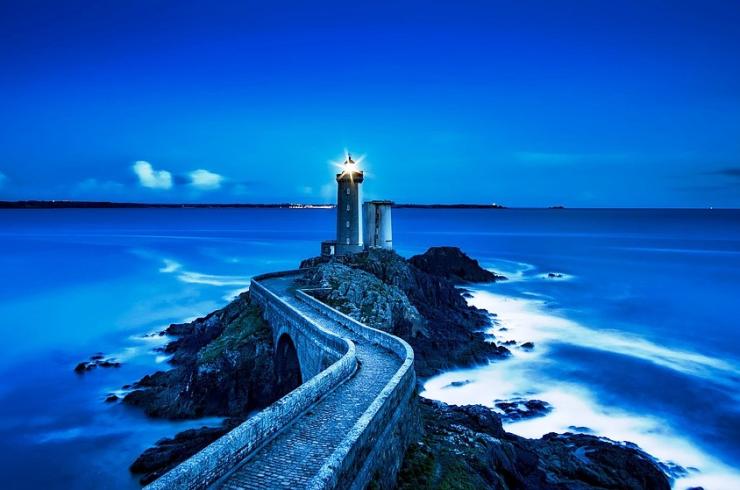While living in a world of irresponsible economics whereby the system concentrates wealth in the hands of a few, Pope Francis asks us to be like a lighthouse in a stormy sea and get involved in the common good.
Undoubtedly, today we are living in a world of irresponsible economics in which fortune-makers forget that an economic world order cannot be built on economic foundations alone. Historian Arnold Toynbee was certain of it. Universal values of fairness cannot be sacrificed to the self-interest of a few who control affairs.
While it is true that the market is productive and raises living standards, it tends to concentrate wealth in the hands of a few, pass on environmental costs to society, and abuse workers and consumers. “Markets must be tamed and tempered,” says economist Joseph Stiglitz.
Big corporations and bankers should not be allowed to have recourse to fraudulent and unethical ways nor take advantage of the weaker sections of people. Democracy cannot be limited to a ritual of periodic elections; it must listen to the voices of suffering people. Poor governance in many countries is due to too cozy relationships among business houses, civil servants, and politicians. Large business houses have excessive power, contends Gurucharan Das, an Indian author. Citizens show their Christian sense of responsibility remaining well-informed of affairs and taking on challenges.
The Government should be made to play a regulating role, when, for example, producers seek to make profit by making their products more addictive or are indifferent to the damage they inflict on the environment, or consumer interests are ignored. The ethical consciousness in society has to be kept alive and the market must be given a moral character. The economy’s movers seem to have lost their ‘moral compass.’ Justice has become injustice (Hosea 10:4).
The consequence is the constant restlessness we notice in society. Anger is intensifying. The Spanish youth, marginalized by their economy, called themselves ‘los indignados’ (the angry ones). When genuine grievance gets mixed up with anger engineered by people with political interests, matters become more complicated. In many places, we are in such situations.
Certainly, street revolutions are not the best answer to social problems. However, people are still trying to find other effective alternatives. Collaboration among thinking people can make proposals. The fact is that people do not have sufficient confidence in the ideas or in the sincerity of the leadership. Consequently, it is not only the anger of the working class that is growing, but that of the middle class. There is too much of a sense of frustrated expectation among them.
Moises Naim says that the rising middle class, the new aspirational class, is the fastest growing segment in the world, and it will be a leading group in coming conflicts. They have anger from unfulfilled expectations. This makes it difficult to say whether street demonstrations are signs of regeneration and self-confidence or of anarchy, or plain political irresponsibility.
If the prompters of protest inspire violence, in addition, the scenario changes dramatically. There are enough instances of violent citizens making themselves stronger than the state, joining politics, and becoming lawmakers. Criminality in politics is in the ascendant.
Looking more closely at the Third World, we notice that much of the ‘emerging’ world now stands to repeat, on an ominously large scale, the West’s tortured and often tragic experience of modern ‘development’. In many countries of Asia, the reckless pursuit of economic growth at any cost has created a gaudy elite; it has widened the existing social and economic disparities. An economy built on an unjust base has no future. Social disturbance will accompany it all the time. Freedom for enterprise and venture must combine with responsibility for the common good, which alone adds a human dimension to it.
The market becomes inefficient if it ignores the human dimension. Human values must be given a place in the economy for the very success of the economy. On the contrary, in more egalitarian societies, people work hard and seek to share the benefit of growth. In such societies, high levels of social responsibility are awakened and rules for environment protection respected. There people see the need to invest in infrastructure, education, health and research. Mutual trust is spontaneously generated. Business leadership wins the confidence of the people. It is such a society that creates a climate for good economy. Mutual trust is an invaluable social capital.
Pope Francis speaking in Marseilles, asked us to be like a lighthouse near a stormy sea. While he was referring to migrants and refugees in the Mediterranean Sea, it reminds us of all those thrown into the sea of uncertainty in today’s storm of economic uncertainty. He asks us to shed the “fanaticism of indifference” and get involved in the common good (L’Osservatore Romano, 29.9.23).
That is what a conscientious Christian does with his/her continuous effort to bring to birth a collective conscience in a society committed to the common good. (Thomas Menamparampil – Archbishop Emeritus of Guwahati, India – Photo: Pixabay)






